The Saint Lucia Solid Waste Management Authority’s Journey Toward Sustainability
Innovative engineering, community partnerships, and over $5 million in World Bank funding are transforming waste management into a cornerstone of the Caribbean’s sustainable blue economy.
Preserving the beauty of Saint Lucia is no easy task but for the Saint Lucia Solid Waste Management Authority (SLSWMA), it’s a daily mission. Established in 1996 through an Act of Parliament, the Authority has spent nearly three decades evolving from a fledgling statutory body into the island’s cornerstone for waste management. The SLSWMA oversees the collection, treatment and safe disposal of approximately seventy five thousand (75,000) tons of waste annually, through its island wide network, keeping communities clean, the environment safe and the island more resilient.
At the helm of the SLSWMA is General Manager Joanna Raynold Arthurton, an Urban Planner and Policy Specialist with over thirty (30) years of experience in Physical Planning, Housing Planning, Urban Development, Environmental Management, Social Development and Education. Her leadership has contributed to positioning the SLSWMA as a champion of sustainable waste management, balancing technical expertise with innovative solutions to address Saint Lucia’s growing waste management challenges.
Ms. Raynold Arthurton explained that the Authority’s work goes far beyond simply waste collection. The activities of the SLSWMA include inter alia the operation of two major waste management facilities and a composting facility; collection of waste from households and public institutions; treatment of biomedical waste collected from medical facilities; the management of specialized disposals from ships and aircraft; and the establishment of depots for the disposal of waste oil, which is supplied to local businesses for energy generation. Meanwhile, the commercial sector and other private entities are responsible for managing the waste they generate.
Education and public awareness are central to the Authority’s approach, helping communities understand the importance of waste reduction, recycling, proper disposal and the impact of littering. By promoting these practices, the Authority encourages behavioural changes that not only reduce the volume of waste entering landfills but also help keep public spaces clean and environmentally safe.
The heart of this system lies in two key facilities, the Deglos Sanitary Landfill in the capital city Castries and the Vieux Fort Solid Waste Management Transfer Facility in south of the island. The Deglos Sanitary Landfill, established in 2003 under a World Bank funded project, is described by the General Manager as a critical milestone in Saint Lucia’s waste management infrastructure. This facility replaced the overburdened Ciceron dumpsite, setting a new standard for safe and controlled waste disposal. Originally designed to last twenty (20) years, the landfill has already outperformed expectations. In 2021, it was estimated that only about fifty percent (50%) of its capacity of one million, one hundred and seventy-four thousand (1,174,000) tons had been utilized. Meanwhile, the Vieux Fort facility has been converted from a controlled dumpsite, to serve as a transfer station, with waste transported six days a week to the Deglos Sanitary Landfill for final disposal.
Composting, Recycling and Waste Diversion
The Authority recognizes that traditional landfill operations alone cannot solve Saint Lucia’s waste management challenges, particularly in a region where the Caribbean registers one-third more plastic waste per kilometer than the global average. The General Manager acknowledged that Saint Lucia’s waste management legislation must evolve to enable greater waste diversion, reuse and reduction. Central to the Authority’s sustainability efforts is an upgraded composting facility that has been transformed in the past two years, from a small-scale operation into a revenue-generating enterprise. The composting operation converts green waste disposed of at the landfill into compost, wood chips and wood mulch, which are sold to the public. This facility stands as another key achievement for the SLSWMA, demonstrating its commitment to advancing waste management solutions. Building on this success, plans are already underway to establish a similar composting facility in the south of the island, under the World Bank funded UBEC Project.
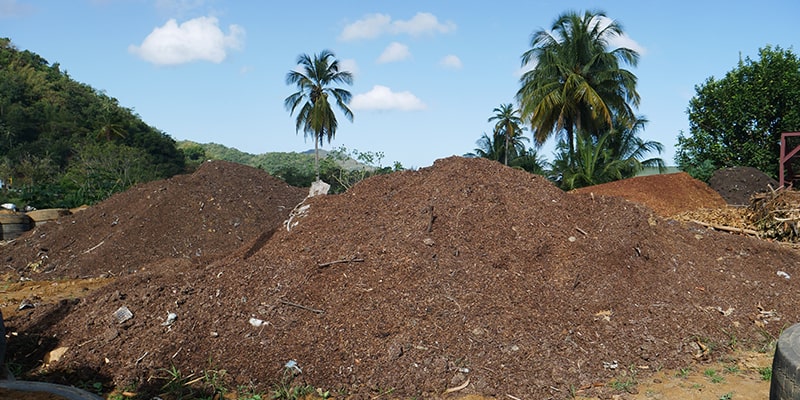
Community engagement is at the heart of the Authority’s waste diversion strategy. To date, as part of the Recycle Organics Project, the Authority has distributed composters to approximately two hundred (200) households, empowering families to process organic waste at home. “At the household level, they can divert waste and create a resource that they can use in their backyard gardens,” General Manager Raynold Arthurton explained. Building on these efforts, the upcoming Community and Schools Plastics Collection Initiative will channel recyclable materials to local processors, tackling a waste stream that accounts for nearly twenty-four percent (24%) of Caribbean municipal solid waste, according to recent regional studies.
Infrastructure Investment and Modernization
The Authority’s infrastructure development strategy relies heavily on external funding partnerships, which shape many major project decisions. “A significant percentage of what we do, depends on projects and donations from various funding agencies,” General Manager Raynold Arthurton noted. This support has enabled major equipment acquisitions, including those planned under the UBEC Project. At the same time, despite resource limitations, the Government of Saint Lucia continues to contribute. Most recently, the government has provided funding for a landfill-grade bulldozer and a tire slicer, ensuring that the Authority’s progress is supported both locally and internationally.
A key staffing addition has accelerated infrastructure developments at the Authority’s two solid waste management facilities. “One of the gaps in the Authority’s staff structure was the absence of an Engineer with the expertise required to oversee proper landfill management,” explained General Manager Raynold Arthurton. “The newly appointed Civil Engineer, Dr. Kevin Charles is now leading the rehabilitation of the landfill, including the reestablishment of the leachate collection and treatment system, the organized development of tipping face cells and the implementation of best practices such as waste covering and proper compaction.” The rehabilitation project tackles key operational shortcomings at the Deglos facility, extending its projected lifespan through targeted improvements.
Building on these efforts, the Authority is also conducting feasibility studies to identify a suitable site for a second landfill in the south of the island. This initiative, which is being funded through the UBEC Project, aims to eliminate the costly practice of transporting waste from Vieux-Fort to Castries. “We are actively seeking to establish a landfill to service the south of the island,” Raynold Arthurton noted, highlighting the geographic challenges of managing waste across Saint Lucia’s six hundred and seventeen (617) square kilometers while serving a population of approximately one hundred and eighty thousand (180,000) people.
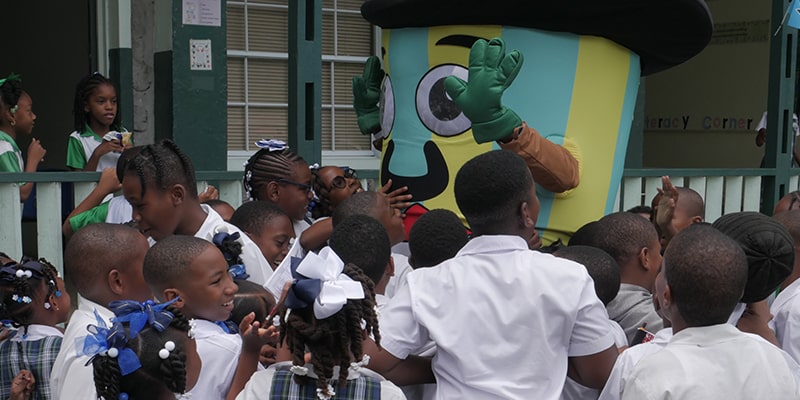
Creative Solutions and Project Revival
The addition of new engineering expertise has sparked innovative solutions at the Authority, transforming long-standing operational challenges into practical, cost-effective projects. One standout example is the long-delayed construction of an alternative road to the landfill’s tipping face. The newly appointed Civil Engineer has introduced a creative solution, using the Authority’s stockpiles of used tires to produce mechanical concrete for the road surface, a move that both meets infrastructure needs and tackles waste disposal challenges. ‘We have had piles of tires with limited use,’ General Manager Raynold Arthurton remarked, ‘and now they will serve a practical purpose in road construction.’
Beyond engineering innovations, the Authority will revive a well-received plastics collection initiative that ended due to project funding cycles. The General Manager noted that “through the Community and Schools Plastic Collection Initiative, the SLSWMA will build on and provide continuity to the earlier RePLAST OECS Pilot Plastic Recycling Project, which had established pop up collection depots in several communities”. The RePLAST Project was a pioneering initiative launched in May 2019 to tackle plastic waste in the Eastern Caribbean. Spearheaded by UNITE Caribbean and supported by the Republic of France and the Government of Saint Lucia, the project aimed to establish a sustainable, incentivized plastic waste collection and recycling system.
Recruiting Talent for Waste Management
Recruiting qualified staff for waste management positions often proves difficult, even in a region where unemployment remains a persistent concern. ‘People complain that there are no jobs and that young people are qualified,’ observes General Manager Raynold Arthurton, ‘but when we advertise, sometimes we get zero applicants or the applicants we do get are not suitable for the position.’ These recruitment challenges highlight the highly specialized nature of waste management, a sector that demands technical skills, regulatory knowledge and hands-on experience. In the Caribbean, where formal educational pathways and training programs for waste management are still limited, finding the right talent can be an uphill task.
Despite the recruitment challenges, General Manager Raynold Arthurton describes the role as deeply rewarding, particularly when the right resources and personnel are in place. ‘Compared to other roles I have held, this position is particularly fulfilling,’ she reflected. ‘You can see the results of your decisions in real time. With the necessary financing and the right team, you can make things happen in the short term and deliver visible improvements to the island’s waste management system.’
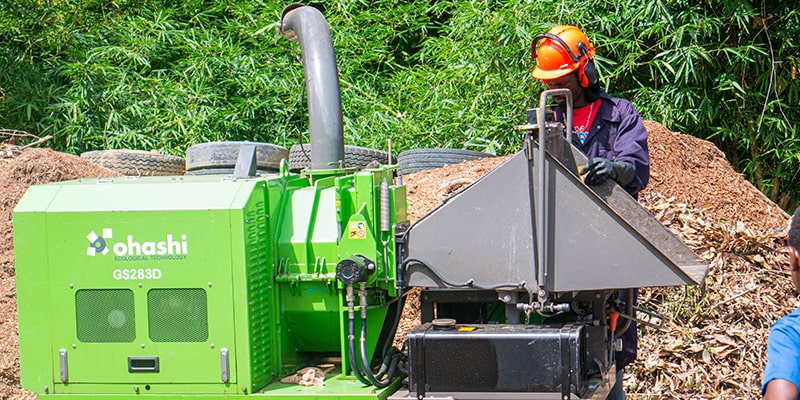
Strategic Priorities for 2025-2026
When questioned on the strategic priorities of the SLSWMA for the 2025/26 financial year, Raynold Arthurton highlighted the Authority’s focus on strengthening existing infrastructure and rolling out new programmes that have the potential to transform Saint Lucia’s waste management landscape. Key projects include the rehabilitation of existing facilities, conducting feasibility studies to guide the selection of a site for a new landfill in the south of the island, initiating the plastics collection initiative and modernizing existing legislation.
Complementing these efforts is a comprehensive review of the island’s legislative framework. With support from the United Nations Environment Programme (UNEP) through the European Union–funded Zero Waste in the Caribbean Project, the SLSWMA has embarked on a critical initiative to revise the Waste Management Act (Cap. 6.05 of the Revised Laws of Saint Lucia). This review aims to align national waste management regulations with global best practices and international standards, particularly incorporating circular economy principles. A key component of this work is the development of regulations designed to set clear standards, ensure compliance, safeguard the environment and promote sustainable waste management practices.
Equally central to the implementation of these strategic priorities is the modernization and expansion of the Authority’s equipment fleet. Upgrading machinery is expected to significantly reduce operational costs, as the SLSWMA currently outsources several critical services, a practice that strains the budget. According to Raynold Arthurton, this reliance on contractors is set to change, as key pieces of equipment, including a bulldozer and tire slicer are already enroute to the landfill, while other machinery, such as a loader and sifter to enhance the composting operation, has been procured through the Recycle Organics Project. Within the next two months, two new trailer heads will arrive, enabling the Authority to transport waste from Vieux Fort to Castries using its own walking-floor trailers. This shift will end dependence on contracted services and give the organization greater control over operations. The coming months will be decisive as these investments translate into tangible improvements across Saint Lucia’s waste management system.
Innovation in service delivery will also be extended to underserved communities, particularly settlements in the Castries basin, where traditional curbside collection methods are often impractical. According to General Manager, the SLSWMA is exploring the implementation of a pilot Micro Haulers Project in a community on the outskirts of Castries. This initiative is designed to evaluate a new approach to waste management, enabling efficient door-to-door collection in areas established on marginal lands. By piloting the project, the SLSWMA aims to refine its methodology and create a model that can be scaled up for broader implementation in other similarly challenged communities and provide a replicable model for similar Caribbean communities facing geographic constraints.
As Saint Lucia positions itself within the broader regional effort to tackle plastic pollution and develop sustainable waste management systems, the Authority’s transformation from providing a basic collection services to a comprehensive waste diversion operation, underscores the pressing environmental and economic challenges confronting small island developing states. Its ability to balance immediate operational demands with long-term sustainability goals sets an example that could shape waste management strategies across the Caribbean.
AT A GLANCE
WHO: Saint Lucia Solid Waste Management Authority (SLSWMA)
WHAT: How the SLSWMA is transforming waste management across the island, from operating key facilities and advancing recycling initiatives, to modernizing infrastructure, updating legislation and pioneering innovative solutions for underserved communities. All with the goal of creating a cleaner, more sustainable Saint Lucia.
WHERE: Castries, St. Lucia
WEBSITE: sluswma.org
PREFERRED VENDORS/PARTNERS
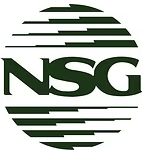
NSG Exports Ltd.: www.nsgwestindies.com
NSG Exports Limited was established 50 years ago and for decades has been supplying various Solid Waste authorities across the Caribbean. Recently supplied equipment includes compactors, bulldozers, shredders, balers and waste management systems. With reliable and innovative solutions and worldwide best practice, NSG supports Caribbean authorities to manage waste effectively and promote cleaner, healthier environments while supporting sustainability.

RIMCO Barbados SRL: www.rimcocat.com
At RIMCO CAT, we go beyond machines. We deliver solutions, expertise, and trusted partnerships. With world-class Cat® equipment, genuine Cat parts, flexible rentals, financing, and unmatched service, we empower Caribbean businesses to build smarter and stronger. Wherever you are, your vision drives us, and we keep it unstoppable.

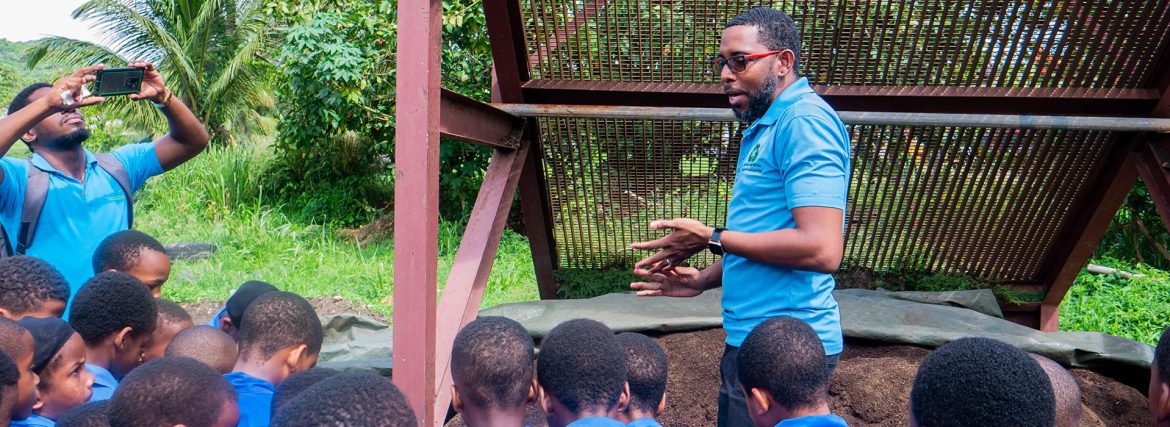
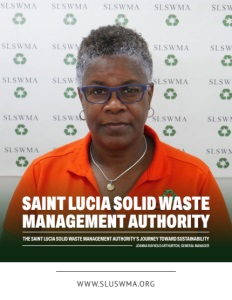
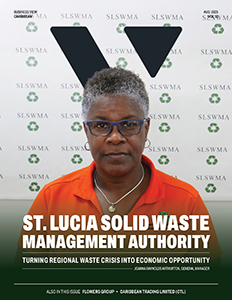
 This information will never be shared to third parties
This information will never be shared to third parties